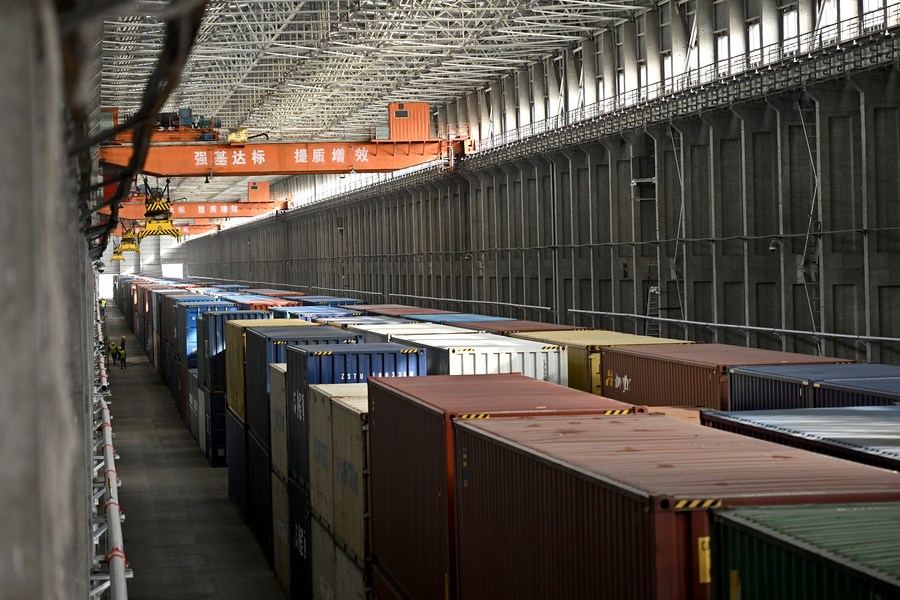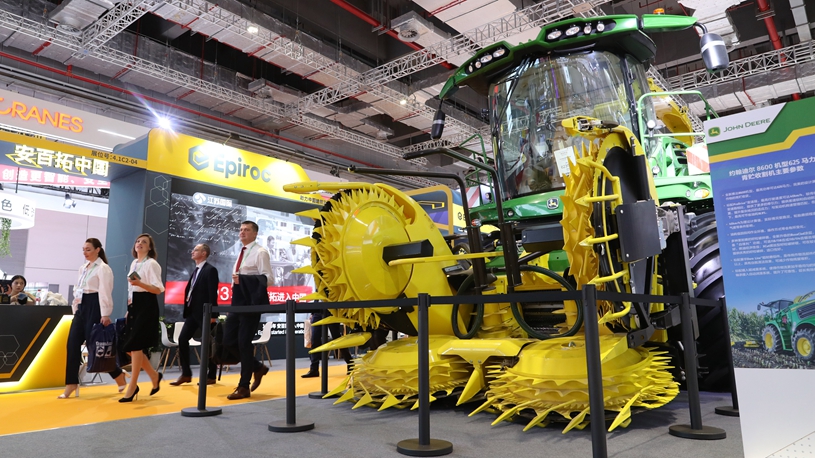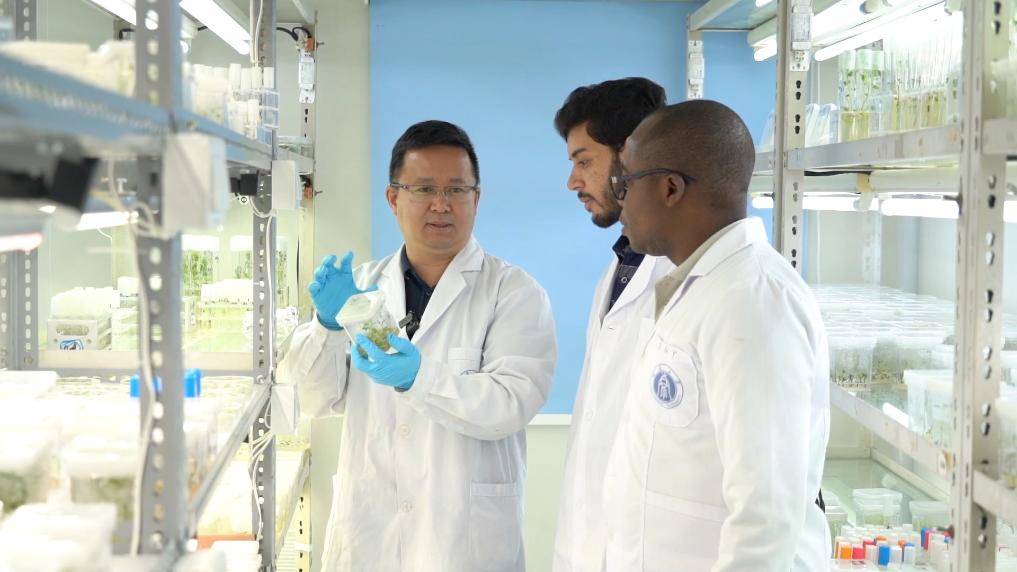
This photo taken on Nov. 4, 2023 shows a container warehouse at the Alataw Pass in northwest China's Xinjiang Uygur Autonomous Region. (Xinhua/Li Xin)
URUMQI, Nov. 8 (Xinhua) -- Workers opened the valve of a special train carriage, allowing wheat to slide to the belt conveyor at a logistics center in the port city of Alashankou, northwest China's Xinjiang Uygur Autonomous Region.
In less than six hours, over 3,000 tonnes of imported grains were unloaded. "This bespoke train connecting China and Kazakhstan can unload a large amount of grains in a short period," said Zhang Faqi, the manager of the center. "It reduces manual labor and saves transportation fees."
This year, over 300,000 tonnes of grains have been unloaded from 103 such trains, he added.
Alashankou, also known as Alataw Pass, is a crucial hub connecting China with Central Asia and Europe, where food, automobiles, accessories, minerals, and other goods are transported.
China and neighboring Kazakhstan adopt different railway standards. In China, a standard-gauge railway applies, while in Kazakhstan, a broad-gauge railway is used.
To smooth the transport process, workers use gantry cranes to reload containers from Kazakhstan trains to Chinese ones in an indoor transshipment warehouse run by the Alashankou railway station.
"Transshipment can take about an hour for a China-Europe freight train," said Guo Hua, deputy head of the warehouse. "The indoor warehouse guarantees the smooth transport of goods, regardless of the weather."
This year, Alashankou has handled more than 5,500 China-Europe freight trains. Over 580,000 tonnes of goods have passed through the highway port of Alashankou, up 90 percent year on year.
Andrei Kouhto, a truck driver from Belarus, frequently travels through Alashankou. "The transportation time has lessened with the implementation of more convenient customs clearance measures," he said.
Alashankou has attracted many investment enterprises with better infrastructure and customs services.
Alashankou Jinmu Biotechnology has recently launched a cooking-oil physical refining project in the Alashankou integrated free trade zone.
"We cooperate with countries and regions rich in agricultural resources, and we distribute our products across China," said Yang Haiquan, the company manager. "We have benefited from Alashankou's transportation system and the favorable policies of the zone in many ways."
The zone now has over 800 enterprises, over half of which are in trade and logistics. This year alone, over 130 enterprises established themselves here. ■












